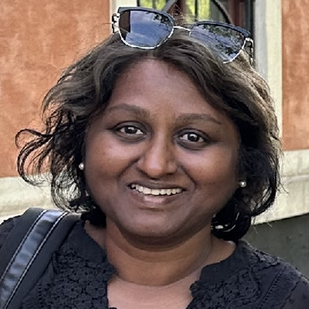Global Non-Communicable Diseases Prevention
This sub-group primarily works with intervention and implementation research for the prevention of non-communicable diseases (NCD) in different countries and settings, both urban and rural. Moreover, we have an equity focus and work mainly with disadvantaged or under-resourced populations and settings in low-, middle- and high-income countries. The sub-group has an overall focus on the primary and secondary prevention of NCDs, mainly diabetes and other cardio-metabolic conditions. This includes development and implementation of self-management support interventions, screening for high-risk among hard-to-reach populations, and community mobilization, engagement, and outreach for disease prevention activities. Additionally, we also work with understanding food and physical activity environments and behaviours and the interaction between the two, also from an NCD perspective.

Project descriptions
Ongoing projects
PREVENT - Co-design for reduction of Cardiometabolic Risk: implementation and effectiveness of a Tele-Health Coaching intervention with community outreach in Region Uppsala
Funded by Swedish Research Council; Period: 2022-26
PREVENT aims to co-design, implement and test a tele-health coaching intervention with community outreach for the reduction of cardio-metabolic risk among high-risk population in Region Uppsala. It builds on a previous EU project, SMART2D (2015-20) and uses a mixed methods approach comprising two parts: 1) a co-designed community outreach component by community stakeholders, participants and research team; and 2) a controlled trial to test the effectiveness of a staggered intervention that integrates tele-health coaching and community outreach. The interdisciplinary consortium comprises two higher education institutions (Uppsala University and Karolinska Institutet), Region Uppsala and the Swedish Industrial Design Foundation specializing in co-design for system and policy transformations. Understanding the process and outcome pathways of innovative interventions to reduce cardiometabolic risk and improve healthy behaviours is important for their transferability, scalability and to promote actions towards improving health equity.
Read more about the PREVENT-project at the PREVENT project website.
The Gulid-ARUA Cluster of Research Excellence (CoRE) on Food Environment Actions for the Promotion of Health
More information will come.
Project descriptions
Completed projects
Innovating health systems and healthcare delivery in rural Uganda: towards building critical capacity to tackle the rising Type 2 Diabetes challenge
Funded by Swedish International Development Agency (Sida); Period: 2015-2022
A capacity building programme to enhance and build critical capacity for chronic care in Uganda, through education, training.at doctoral and post-doctoral level, and research evidence generation, within an overall research framework to innovate and strengthen health systems. This work is being carried out through a team of supervisors from Makerere University and Mbarara University of Science and Technology; and Karolinska Institutet partners (includes Uppsala University). Considering the challenges associated with the prevention and management of chronic non-communicable diseases, this capacity building programme is embedded within a research framework to strenghthen both community and facility capacity for chronic care, using Type 2 Diabetes as an example. This project is coordinated from Karolinska Institutet, Stockholm.
SHIFT Framework and Compendium of Good Practices: Shifting to equitable health and nutrition through food environment transformations
Funded by World Health Organization & EAT Forum; Period: 2020-22
A transformative change of our food environment is urgently needed to improve human health and nutrition, planetary health and meet the Sustainable Development Goals. The SHIFT Framework assists technical staff working in nutrition and health through a process of identifying and implementing equity focused interventions related to the food environment. It includes: 1) the SHIFT Framework for developing contextualized interventions for improved equity in health and nutrition through food environment actions; 2) the SHIFT Compendium, a searchable database of 68 good practices on equity-focused actions on the food environment searched; and 3) Tools for Transformation, a set of selected online tools to assist technical staff in implementing health and nutrition interventions to transform the food environment in their setting. This work was carried out by our team with the technical and financial support from the Unit of Multi-sectoral Action in Food Systems, World Health Organization, Geneva, Switzerland. The SHIFT framework is set to be launched in March 2022.
For more information: www.shiftframework.org
SMART2D: A people-centred approach through Self-Management and Reciprocal learning for the prevention and management of Type-2-Diabetes
Funded by EC Horizon 2020; Period: 2015-2020
SMART2D was a 5-yr collaborative project and we were a consortium of six partners: Makerere University school of Public Health, Uganda; University of Western Cape School of Public Health, South Africa; Institute of Tropical Medicine, Antwerp; Collaborative Care Systems Finland; Uppsala University; and Karolinska Institutet (coordinating institute). Our overall objective was to strengthen capacity for type-2-diabetes care through a contextually appropriate self-management approach with integrated health facility and community components in three sites: Uganda, South Africa & Sweden. In Sweden, SMART2D had partnered with Stockholm County Council and had established connections with the primary care centres (vårdcentral) and citizen's offices (medborgarkontor) of selected municipalities within Stockholm county, where we implemented a feasibility trial. The trial and project are now concluded and analysis is ongoing.
For more information: https://ki.se/en/gph/smart2d
Public Health Interventions: Community-based dietary behaviour change for reduction of non-communicable disease risk factors
Funded through Erasmus Mundus Scholarship (External cooperation window, lot 13) for doctoral studies. Period: 2009-2013
The Behavioural Intervention for Diet (BID) study was conducted in rural Kerala, India in collaboration with local administrations (panchayats) to change household dietary behaviour with respect to increasing consumption of fruits and vegetables and decreasing consumption of salt, sugar and oil. The intervention was implemented through lay women community volunteers in collaboration with a local women's self-help group (Kudumbasree).
